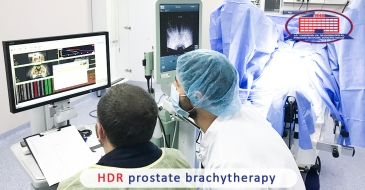Prostate cancer is a malignant tumor and is the most common cancer among men.
Unfortunately, this diagnosis is common in Georgia. That is why, the National Center of Surgery offers a full spectrum of prostate gland examination to all men, especially those who are over 40 years.
The promotion includes a consultation with a urologist, urinalysis, an ultrasound examination of the urinary system with determination of residual urine, and the measurement of the prostate-specific antigen (PSA). If necessary, you have a biopsy of the prostate and magnetic resonance imaging of the small pelvic organs with contrasting using the ultramodern new generation device Toshiba Vantage Elan.
If you want to know more about the promotion, see the details
Why is the measurement of prostate-specific antigen (PSA) essential?
It is a tumormarker, a specific tumor marker of the prostate. Malignant prostate cancer, benign prostatic hyperplasia (BPH) and inflammation can increase serum PSA levels.
The head of the Department of Urology of the National Center of Surgery, Shota Bugianishvili talks about the prostate cancer.
- Mr. Shota, what can you tell us about the causes and risk factors for prostate cancer?
- The exact cause of prostate cancer, like other cancers, is unknown. The risk factors include chronic infectious diseases, genetic factor, smoking, alcohol, improper diet, age-related hormonal disturbances, etc.
- How can we recognize the symptoms of prostate cancer?
- Like other types of cancer, prostate cancer is difficult to recognize, because it has a silent course. At the initial stage, there are no specific symptoms. It should be noted that at the initial stage the symptoms are not different from the usual adenoma. Patients complain of frequent urination, nocturia (excessive urination at night), stranguria (painful urination), a decrease in the urine flow, a feeling of incomplete emptying after urination. If you are familiar with these symptoms, at least one of them, consult with a doctor, as the condition progresses rapidly and more unpleasant symptoms appear, such as complete urinary retention, bloody urine, pain in the lumbar region and perineum.
- At what age do men usually get the prostate cancer?
- Prostate cancer is more common in men aged 45-70 years, but the individuals under 40 years or older than 70 years are not protected from cancer.
Readers should know that the progression of cancer and metastasis at a young age occurs very quickly and the disease has a more difficult course. For the purpose of prevention, all men aged 40-70 years, at least once a year should determine the level of prostate-specific antigen (PSA) in the blood, ultrasound of the urinary system, urinalysis, have a consultation with a urologist. Within the promotion of the National Center of Surgery, you can conduct a full range of examinations of the prostate gland.
You should take advantage of the promotion of the National Center of Surgery if you have the following symptoms: trouble starting and stopping while urinating, frequent urination, pain in the lower abdominal, groin, hip or lumbar areas, burning or pain during urination, weak or decreased flow in your urinary stream, the feeling of the incomplete emptying of the bladder.
- How is prostate cancer diagnosed at the National Center of Surgery?
- At the National Center of Surgery, prostate cancer is diagnosed on the basis of modern guidelines. Prostate cancer is studied with the help of the PSA tumor marker, when it is abnormal, the next step is a biopsy. After confirming the diagnosis, it is necessary to perform magnetic resonance imaging of the small pelvis, as well as the ultrasound of the abdominal cavity, computed tomography of the chest with contrast, X-ray, and digital rectal examination. The National Center of Surgery is, equipped with ultra-modern apparatus and staffed with professional urologists. You can conduct all these studies in one space.
- What can you say about the methods of treatment that the National Center of Surgery offers to patients?
- The treatment method depends on the age of the patient and the course of the disease. If we are dealing with advanced forms of the disease, then we use conservative methods of treatment, chemotherapy, radiation therapy. At an early stage of the disease in order to remove the tumor and nearby lymph nodes, the patient is offered operative treatment, both open and laparoscopic methods.
National Center of Surgery address – Tbilisi, Digomi Chachava street N5.
You can contact the Call-center of the National Center of Surgery at 577 11 91 19 or 2 02 25 25;
If you have some questions, you can contact the head of the Department of Urology of the National Center of Surgery Shota Bugianishvili at 577 32 88 99;
Wish you health!









